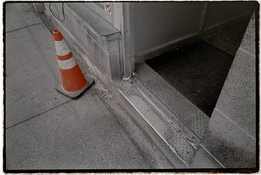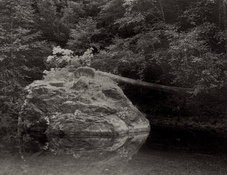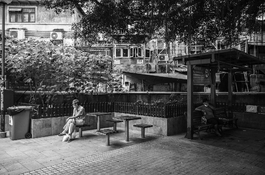- Joined
- Jul 26, 2009
- Messages
- 4,307
- Format
- 35mm
After having shot professionally for a few decades, intensely, and having been passionate about street photography for more than 3 decades now, and equally having spent those 3 decades in the darkroom, I have acquired many chronic physical ailments directly linked to my life with cameras: a lower left shoulder thanks to my camera bag filled with gear.
A kyphosis, with a misplaced disk thanks to wearing cameras around my next (a thing one should ALWAYS avoid at all Cost! Please listen to this!), and also because of the required posture in the darkroom, always looking down. Text neck doesn’t help in this regard. A slightly squinting eye, and a few more. Many here will relate to the above, I’m sure.
But there are many positives to this, which I would call visual muscle memory, which mainly consists of seeing things without seeing them. Understanding scenes without knowing why.
Here is a good example. When I walk I often find myself gazing to a scene, a wall, a door, a street, a window. And falling in love, shortly, irrationally.
Take this photo for example. The scene was strongly appealing, strangely. Thus, I composed and took a photo. I never crop, therefore I was careful. People passing by were looking at me as if I was a bit deranged, and I couldn’t blame them. But it is only once developed and scanned that it jumped at me, what was fully subconscious was full blown conscious on my screen. It was about repetitions of triangles. I can see about a dozen triangles.
How many do you see?
How’s your compositional third eye? This happens to all of us to varying degrees, depending on days and mood.
A kyphosis, with a misplaced disk thanks to wearing cameras around my next (a thing one should ALWAYS avoid at all Cost! Please listen to this!), and also because of the required posture in the darkroom, always looking down. Text neck doesn’t help in this regard. A slightly squinting eye, and a few more. Many here will relate to the above, I’m sure.
But there are many positives to this, which I would call visual muscle memory, which mainly consists of seeing things without seeing them. Understanding scenes without knowing why.
Here is a good example. When I walk I often find myself gazing to a scene, a wall, a door, a street, a window. And falling in love, shortly, irrationally.
Take this photo for example. The scene was strongly appealing, strangely. Thus, I composed and took a photo. I never crop, therefore I was careful. People passing by were looking at me as if I was a bit deranged, and I couldn’t blame them. But it is only once developed and scanned that it jumped at me, what was fully subconscious was full blown conscious on my screen. It was about repetitions of triangles. I can see about a dozen triangles.
How many do you see?
How’s your compositional third eye? This happens to all of us to varying degrees, depending on days and mood.










